
An application of fractions with ties to culinary careers and life skills in the upper elementary grades.
- Subject:
- Family and Consumer Sciences
- Mathematics
- Material Type:
- Activity/Lab
- Author:
- Zane Kittleson
- Date Added:
- 06/12/2023

An application of fractions with ties to culinary careers and life skills in the upper elementary grades.

This is a presentation for the Food Sanitation unit including the guidelines for storing, prepping, handling, and holding food. There is a study guide that goes along with the presentation.

This food truck project ties into the Hospitality & Tourism career cluster, as it focuses on business planning, marketing/advertising, menu planning, food costing, equipment sourcing, floor planning, packaging, cooking, and food presentation. Students who are considering entering into a hospitality or tourism career will greatly benefit from the skills and knowleged gained through this project, as well as from taking the courses in the Family & Consumer Sciences department. This project also provides students with opportunities to practice teamwork, cooperation, problem-solving skills, math skills, and creativity. This project provides a unique, hands-on learning experience that reinforces skills that will be useful in many different types of careers.
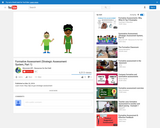
Educators use formative assessment to continually reflect and improve their skills related to these practices. The Formative Assessment video is a resource that can be used to support educators' professional development related to assessment literacy. Use the Video Supplement & Resource Guide to enhance your facilitation of this professional development opportunity.

Authors: Tiffany Lodholz, Morgan May, Jenny GrimesSchool: High Marq Environmental Charter School, Montello School DistrictUnit Title: Garden MathGrade Level: 7-12Content Area(s): Environmental Science, MathematicsContext:High Marq Environmental Charter School is a project and place based school that serves grades 7-12 in Marquette County, Wisconsin. Each week our students participate in a full day field experience designed to connect, explore and engage with the outdoors. These five lessons were all a part of those experiences. Our focus this year was on gardening. All of these lessons took place in the school garden on campus, Our school district has a greenhouse for us to start seeds in and our garden uses primarily raised beds. The students also traveled to a local greenhouse to purchase supplemental plants, soil, mulch, hay, and other accessories.
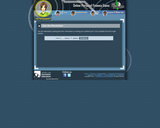
The Gen i Revolution consists of sixteen interactive missions in which students complete a variety of activities to help the learn important personal finance concepts.

Geoscience data from the Wisconsin Geological Survey
This interactive map shows locations of site data for our collections of geophysical logs and Quaternary core.
Geophysical, Quaternary Core, and Rock Core Data is available from across Wisconsin.
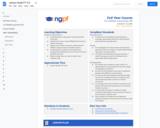
In this 95-minute lesson, students will be able to:
-Understand the importance of having health insurance
-Identify the various costs affiliated with having health insurance
-Explain how health insurance works and the different types of plans available to them
-Understand how government healthcare programs like Medicaid and CHIP work and who qualifies for them
-Explore steps they can take to lower their medical costs
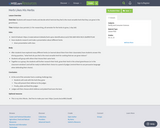
Overview: Students will research herbs and decide which herb do they feel is the most versatile herb that they can grow in the greenhouse.Time: Multiple class periods (2-3 for researching, all semester for the herbs to grow, 2-day lab)Intro: Herb ID Kahoot: https://create.kahoot.it/details/herb-spice-identification/ca2227db-b6bf-4054-9619-2bd9f0575140Have students research and make a presentation about different herbsshare presentation with classBody:After students have explored many different herbs (or learned about them from their classmates) have students answer this driving question, "what herb do you feel is the most versatile herb for cooking that we can grow indoors"Students will group with others that choose their same herb.Together as a group, the students will further research their herb, grow their herb in the school greenhouse (or in the classroom window?) and will be ready to defend their choice to a panel of judges (remind them to use persuasive language when defending their choice).Conclusion:At the end of the semester host a cooking challenge day:Students will cook with the herb they grewThey will present their defense to the judgesFinally, plate and feed the judgesJudges will then choose which defense and plated food were the best. Optional resource:This is my intro iMovie...feel free to make your own: https://youtu.be/acWB110aoBE
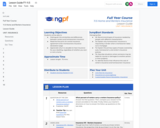
In this 75-minute lesson, students will be able to:
-Distinguish the similarities and differences between renters and homeowners insurance
-Read the fine print of a rental insurance agreement and a homeowners insurance declaration page
-Appreciate why it is valuable to have insurance for your dwelling, regardless of whether you own or rent a home

Check out these links to various Hospitality & Tourism resources that you can use as part of your classroom curriculum today.

Join Danny Rubin, founder of Rubin, and Stacey Shiflet who went from the front desk to general manager of a resort hotel in only three years. This conversation covers the power of employability skills, a day in the life of a hotel employee, how to prepare for the service industry while in school and much more. Students and teachers should also make use of the webinar worksheet at https://rubineducation.com/wp-content/uploads/2022/02/Rubin-Webinar-Worksheet-Q-and-A-about-Service-Industry-March-8.docx
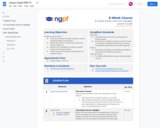
In this 45- minute lesson, Students will be able to
- Track and evaluate a sample student’s current spending habits and expenses
- Determine what the student’s priorities and financial goals are
- Explain how a budget can help the student achieve their financial goals
- Create a plan that outlines the next steps for the student to take
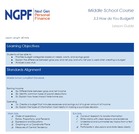
In this 60-minute lesson, students will be able to:
● Prioritize budget categories based on needs, wants, and savings goals
● Explain the difference between gross pay and net pay and why net pay is used when creating a budget
● Analyze a pay stub
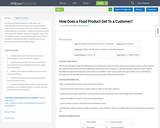
This lesson will allow students to think about and understand the route that a food service product takes in order to get to the customer from start (customer ordering) to finish (delivery to customer). Students will also brainstorm and research the different departments/specific careers that are needed in order to accomplish this goal of food service distribution. ServSafe will also be explored since we are discussing products that are food related.
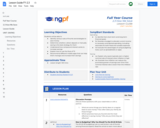
Students will be able to:
-Identify various rules of thumb and strategies to save money
-Determine whether a direct deposit or manually saving is the best strategy for them
-Understand how compound interest works to increase savings
-Explain how to use the Rule of 72
-Recommend different mobile apps that can help them manage and increase their savings
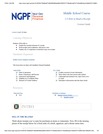
Students will be able to:
Explain the essential elements of a receipt
Read receipts such as pharmacy and grocery store
Explain why it’s important to sometimes keep your receipts
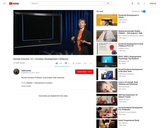
This video is a lecture from Professor June Gruber, from Yale University. Some teachers choose to show the first 8 minutes as an introduction to one of the most basic human emotions, disgust. This video focuses on emotional development, and this video fits in when teaching about developing emotions in early childhood courses.
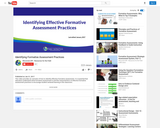
This video tutorial will help you identify effective formative practices. In order to improve student outcomes, it is essential that educators understand what the formative assessment process is and the characteristics of effective formative assessment practices.
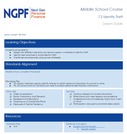
In this 60-minute lesson, students will be able to:
Assess how different scenarios can leave a person vulnerable to identity theft
Identify best practices to avoid identity theft
Create secure passwords using proven strategies